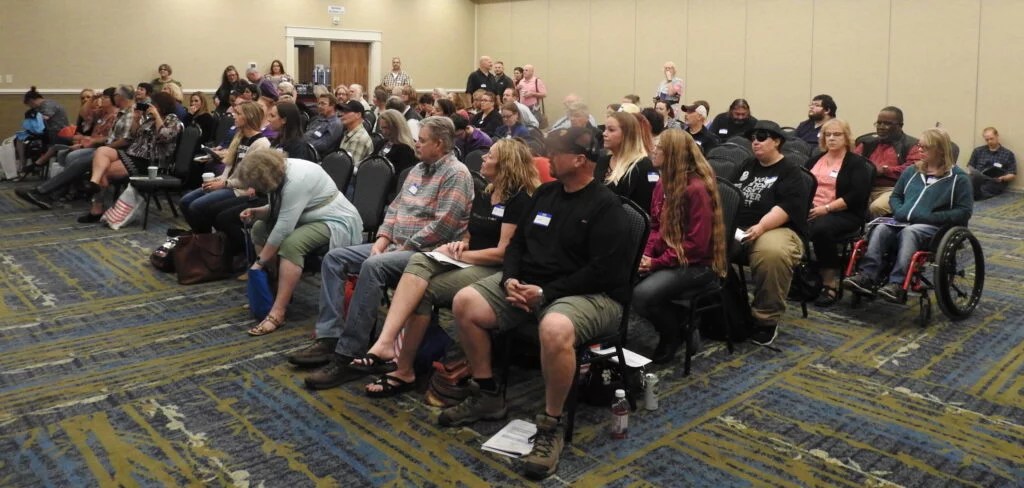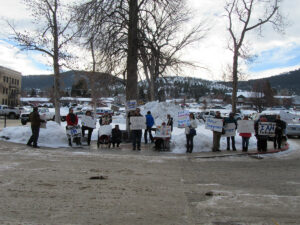We are a network of individuals who are on the path of recovery.
We identify as being in recovery from mental health, substance abuse and or addiction struggles. Together we share information, provide peer support, advocate with a united voice and improve the system. We come from places all across Montana, with different stories and experiences but together we make a difference. This is the Recovery Movement in Montana.


Realizing Recovery Blog
Recovery is Life
Recovery is the beginning of positive change and evolving into the spirit and human being an individual was meant to be. Its the bond and balance of body, mind, and soul. It is the discovery of who Creator really made an individual to be.
Relationships in Recovery
I believe that relationships are what gives each of our lives purpose. The connection that each of us have with the people in our lives is what gives us the ability have the emotions that we get to experience. I also believe that we get to have a relationship with ourselves.
Advocacy
Check out our new page dedicated to tracking state and federal bills, executive orders, and lawsuits.
 Standing up for what we believe is right, having a voice, making choices in recovery, and sharing our own recovery story are some of the things that make up advocacy and self-advocacy.
Standing up for what we believe is right, having a voice, making choices in recovery, and sharing our own recovery story are some of the things that make up advocacy and self-advocacy.
Let’s start with self-advocacy which refers to an individual’s ability to effectively communicate, convey, negotiate, or assert his/her own interests, desires, needs, or rights. It involves making informed decisions and taking responsibility for those decisions (Van Reusen et al., 1994).
Knowing yourself and your strengths, needs, and interests is the first step toward advocating for your rights. Once we begin to find our way on the path of recovery, we may want to begin to advocate for ourselves with those around us—peer supporters, friends, family, service providers, and doctors. These conversations may be difficult, but having them is vital to your recovery. Remember, you are the expert on yourself.
It may be that prior to getting on the path to recovery, others were making decisions for you or acting in what they believed to be your best interest. Now may be the time for you to let others know what you believe to be in your best interest. You may find yourself in the process of taking control and making decisions affecting your life and perhaps others’ lives. This process of self-determination means making informed choices, problem solving, setting and attaining goals—essentially being a self-advocate.
Advocacy or advocating for others may be something you are interested in doing. Advocating for another person isn’t about acting in a person’s perceived best interest, but it is standing with a person to ensure they are able to articulate and obtain what they want or need. Perhaps you may consider speaking up and advocating for various changes in the services in your community.
Here are a few examples of advocacy:
- Speak to your legislature or a special committee.
- Get involved with an advocacy group or organization.
- Share your recovery story to support others in recovery.
- Whether advocating for yourself, for others, for your community, or as part of an organization, advocacy is very self-empowering. You can make a real difference in your life, the lives of others, and even the community.
- Reach out to Montana’s Peer Network and share your recovery story on one of our “Recovery Talks” podcasts.
Advancing Advocacy Blog
The role of peer support in crisis response
This is one topic I am very familiar with and have spent years advocating in Montana. Our website has specific information on various demonstration projects MPN have operated over the years. It is one of the most asked questions I get when it comes to the implementation of peer supporters. This article will attempt to provide resources, and the “how to” for implementation of peer supporters into your crisis program.
CBHPSS Workforce Development
At the time of this article there are 210 certified behavioral health peer support specialists in Montana. Since the first peer supporter was certified by the board of behavioral health in September of 2018, there have been a total of 400 peer supporters certified. Roughly half or 50% are still working today. The other way to look at it is 50% or half are not. Losing half of its workforce in just over 5 years is not a sign of a healthy workforce. Historically MPN trains around 100 peer supporters a year, half of those who complete Peer Support 101 will not go onto get certified. Which is a topic for another article. Half of those who do complete training and are certified will not be for long. The CBHPSS workforce in Montana needs additional support.



